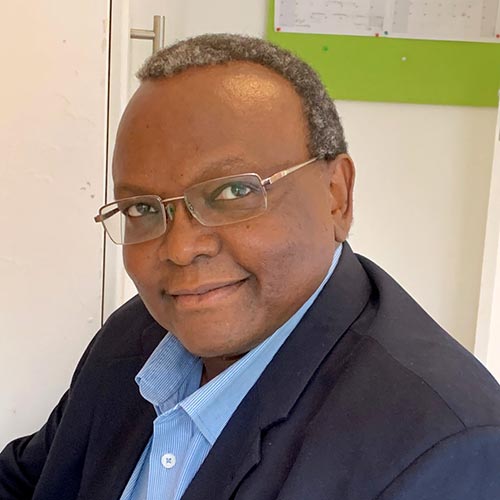The mass protests across the United States of America, which also spread around the world, following the killing of George Floyd, reveal an epidemic of racism and the persistence of white supremacy in the underbelly of some U.S. police departments, as well as the wider society. South Africa shares a common history with the U.S., including human exploitation through slavery, colonialism and apartheid, fuelled by notions of white supremacy and black inferiority. South Africa travelled along a different path in its attempt to confront the legacies of the brutal past by pursuing a process of national reconciliation, through institutions such as the Truth and Reconciliation Commission (TRC). Would the United States benefit from convening a truth commission, that is modified and adapted to the specific needs of the country as it traverses this introspective moment of soul searching?
The South African journey is by no means over after the transition from apartheid in 1994, and there is widespread discontent about the absence of deeper attitudinal and behavioural change, because racist mindsets are still very much alive and causing harm across all sectors of the society. However, the path that South Africa has chosen suggests that dealing with residual racism is a necessary part of the process of confronting discriminatory mindsets. The continued recurrence of U.S. police brutality against black people suggests that the discriminatory and racist mindsets that prevailed during slavery and Jim Crow segregation are still intact within American society and will need to be disrupted and dismantled through a broad range of national transitional justice processes.
Providing a national historical record
Transitional justice requires genuinely confronting the injustices of the past, through determining the truth, pursuing accountability and redress, providing psychosocial support, reforming institutions and restructuring socio-economic relationships, to prevent the recurrence and persistence of harm to members of society.
The South African TRC, established through parliamentary legislation and appointed by President Nelson Mandela, documented a national historical record of the “truth” of the atrocities that were committed in the country’s brutal apartheid past. This now serves as a common template through which all present and future generations of South Africans are educated about what actually transpired in the past.
There are many contested versions about what transpired in U.S. history, to the extent that the white supremacist right-wing, so called ‘alt-right’, believes that slavery was beneficial to black Americans because they would have had it worse if they had remained in Africa. In addition, the fact that the confederate flag is still upheld as a “cultural symbol” reveals that there is a commemoration, or celebration, of the era of slave-owning states, without a moral questioning of the racial terror, brutality and suffering that was endured by African-Americans in these states. A leaked 2006 U.S. Federal Bureau of Investigation (FBI) assessment suggested that white supremacist organisations were actively infiltrating local police departments through covert operatives known as “Ghost Skins”, to advance their racist agenda. The epidemic of police killings of African-Americans illustrates that this agenda is now in the execution phase.
The failure to address socio-economic exploitation
Consequently, there is a strong case for a U.S. truth, memory and restoration commission that will document a national history of what transpired in the past so that present and future generations can speak from a common record, about who was exploited and who contributed towards the building of modern America. The fact that the atrocities committed against the Native-Americans have also not been formally documented and utilised for a process of introspection and national healing, requires that a prospective U.S. truth commission has to interrogate this past as well. There is precedence of similar interventions in the U.S., such as the pioneering work led by the distinguished U.S. lawyer Bryan Stevenson and his organisation Equal Justice Initiative (EJI), including the documentation of all lynchings in numerous counties, as well as the establishment of the National Memorial for Peace and Justice in Montgomery, Alabama. Stevenson has documented his landmark efforts in his seminal book, Just Mercy, which has subsequently been converted into a film that is widely accessible for educational purposes.
The South African TRC recommended a broad range of political and civic interventions, some of which still need to be implemented. However, the TRC has gained notoriety for failing to activate processes that would reverse the socio-economic exploitation that was endured by people of colour during apartheid. The TRC also avoided addressing the era of colonialism which subsequent generations of South Africans who are afflicted by the transmission of inter-generational trauma, have viewed as a significant omission.
Archbishop Desmond Tutu, the Chairperson of the South African TRC, proposed that those who were previously advantaged by apartheid should have paid a “wealth tax”. This was routinely dismissed by privileged actors and institutions across society, and subsequent governments did not pursue this agenda. Today, South Africa remains a deeply divided society along economic and racial lines. These omissions as well as a failure to implement all of the key recommendations outlined in the TRC final report have weakened the potential impact that the South African TRC could have made. Civic actors have had to innovate and find ways to support these initiatives, working with government when there is synergy.
Building up political will and support
Therefore, a prospective U.S. truth commission has to be weary of replicating these omissions. It should establish a robust implementation mechanism at the outset. In the aftermath of American slavery, freed slaves were promised forty acres and a mule as a stepping stone towards creating their own generational wealth. However, this policy was never implemented and therefore the case for reparations for descendants of slaves is now even more urgent than before. The important work done in the U.S. House of Representatives to adopt the HR 40 bill to convene a “Commission to Study and Develop Reparations Proposals for African-Americans” is an important initiative that can be linked to the work of a prospective U.S. truth commission.
An obvious question is why this process of truth recording has not been undertaken in a meaningful way at a national level in the USA. The issue appears to be the historic reluctance by the mainstream white population, who dominate the political, judicial, educational and economic sectors, to engage in a genuine manner due to the sentiments of “white guilt” and discomfort that this generates. The American educator and anti-racism campaigner Robin DiAngelo has explained this phenomenon in her seminal book, White Fragility: Why its so Hard for White People to Talk about Racism.
The country’s leaders, including past presidents, have shied away from launching bold and courageous conversations about what it will take to redress the injustices of the America’s past due to the political blow-back that they would have to endure. The current internecine tribal confrontational politics in the U.S. Congress suggests that prospective legislation to establish a U.S. truth commission could gain traction in the House of Representatives, but falter in the Senate. Nevertheless, the groundwork should begin, and continue as an ongoing initiative, in order to leverage any opportunities that might be presented by an improved openness in future congresses.
The work starts at home
Truth commissions are not a panacea that will solve all societal problems, but they can be part of a range of interventions which gradually contribute towards consolidating anti-racism as a way of being and ultimately dismantling the vestiges of white supremacy. In order to disrupt the epidemic of police brutality it may be necessary for the U.S. to adopt processes of truth recording, socio-economic reparation programmes, and establishment of implementation mechanism that will guide nation-wide conversations for generations to come, across all states and counties, especially those that were affected by slavery, lynching and police brutality.
In the meantime, the collective introspection and unlearning of our internalised and unconscious biases is something that we all need to be doing on a daily basis in our families, schools, work spaces, places of worship, and in our communities so as to reaffirm the eternal truth that American civil rights leader Dr. Martin Luther King so passionately argued for – namely, our common humanity.
 TIM MURITHI
TIM MURITHI
Tim Murithi is Head of the Peacebuilding Interventions at the Institute for Justice and Reconciliation in Cape Town, South Africa, and Extraordinary Professor of African Studies at the Centre for African and Gender Studies, University of the Free State. He has over 25 years of experience in the fields of peace, security, international justice, governance and development. He is the author, among other books, of “The Ethics of Peacebuilding” (Edinburgh University Press, 2009) and “Judicial Imperialism: The Politicization of International Criminal Tribunals in Africa” (Jacana, 2019).






